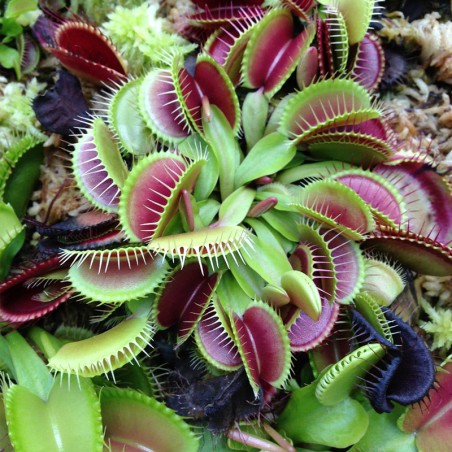






Dionaea muscipula, commonly known as the Venus flytrap, is a fascinating and unique species of perennial plant. It is native to the swamps of North and South Carolina in the United States.
The Venus flytrap is renowned for its characteristic trapping mechanism to capture prey. Its leaf traps have sensitive trigger hairs inside. When an insect touches these hairs, the traps snap shut quickly, trapping the prey inside. This specialized adaptation allows the plant to obtain additional nutrients by consuming the captured insects.
These traps have a distinct and captivating appearance, with their heart-shaped green leaves and sharp teeth-like structures on the edges. The plant uses enzymatic secretions to break down and absorb nutrients from the captured prey. However, the Venus flytrap also undergoes photosynthesis like any other plant, deriving energy from sunlight and utilizing carbon dioxide from the air.
In terms of care, Venus flytraps require specific conditions to thrive. They prefer acidic and moist soils, similar to their natural habitat in swamps. They need adequate exposure to direct sunlight for photosynthesis, but they can also tolerate some partial shade.
It is important to provide them with regular watering, preferably using distilled or rainwater, as tap water may contain minerals that can harm them. Additionally, it is recommended to avoid fertilizing them with chemical products, as the plant obtains the necessary nutrients from the captured prey.
| January | February | March | April | May | June | July | August | September | October | November | December |
Data sheet
No customer questions for the moment.